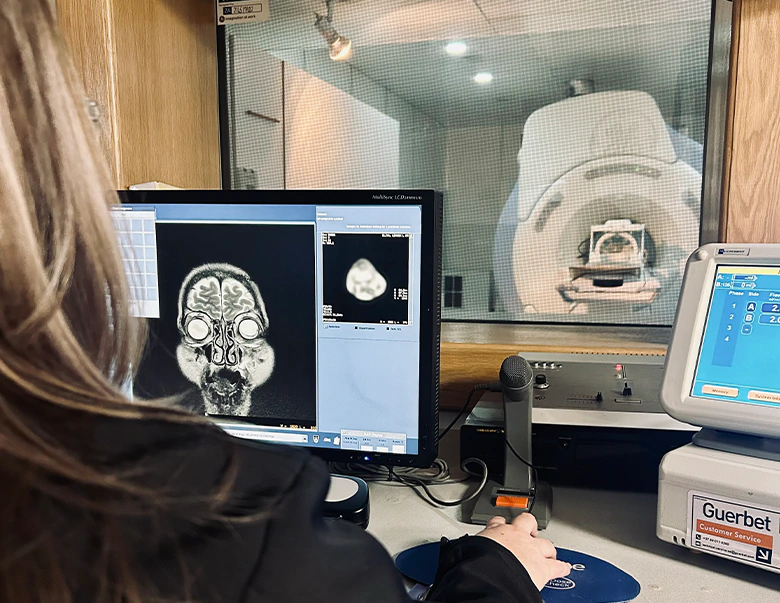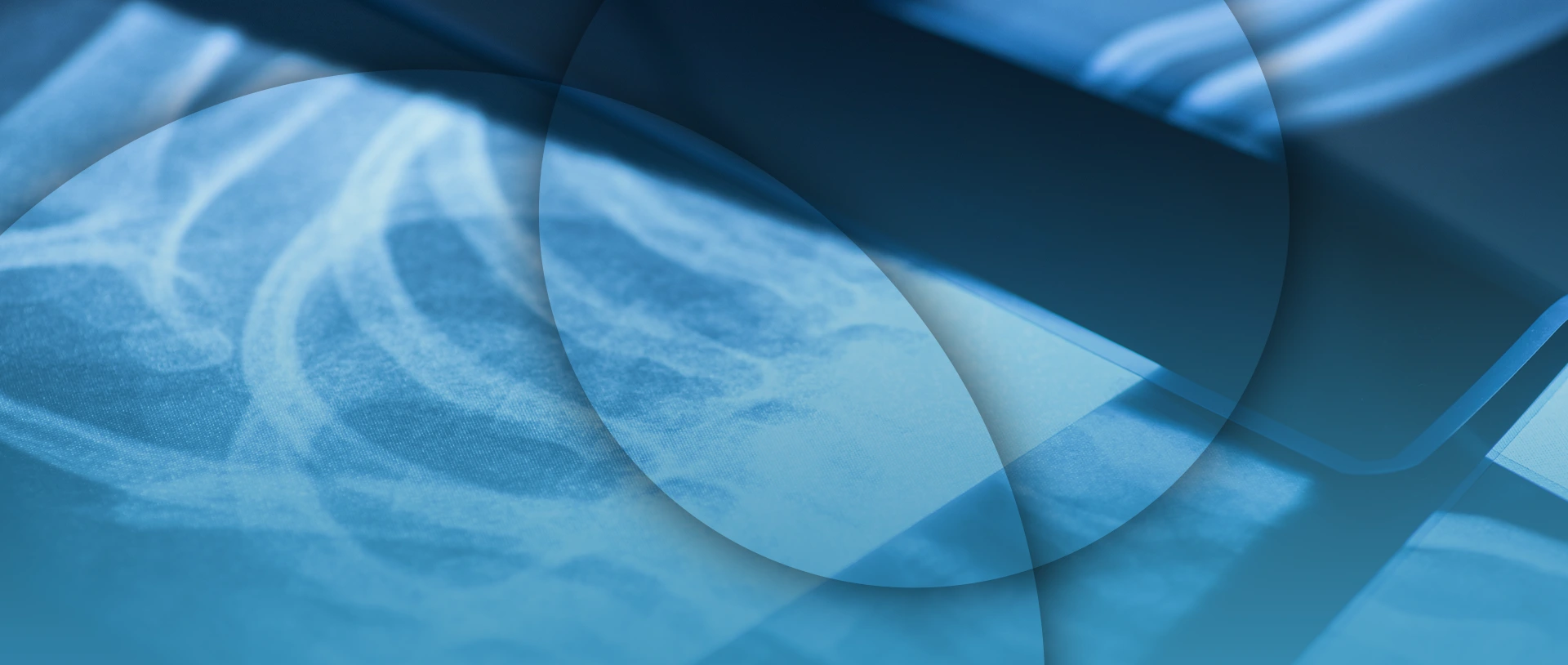


Magnetic resonance imaging (MRI) is a non-invasive and painless medical test that helps physicians diagnose and treat medical conditions. MRI uses a strong magnetic field, radio-frequency waves and a sophisticated computer system to produce detailed pictures of organs, soft tissues, bone and virtually all other internal body structures. The images can then be examined on the computer monitor and images can be viewed in different planes, providing valuable insight into the structure and function of the body. It is commonly used to examine the brain, spine, joints and soft tissues. In neurology, MRI helps us detect and diagnose conditions such as brain tumours, multiple sclerosis and strokes. In orthopaedics, it is invaluable for assessing injuries or degenerative conditions affecting the joints, ligaments and tendons. Additionally, MRI is frequently used to evaluate the abdominal and pelvic organs, assisting in the diagnosis of conditions like tumours, liver disease and pelvic disorders.
Is booking required?
Yes
Branch: Mediclinic, Vereeniging
MRI Safety
An MRI contains a powerful magnet and great care must be taken at all times. You must inform the radiographer if you have any metal or metal implants in your body. Patients with cochlear implants and/or some cardiac pacemakers may not be scanned in an MRI scanner.
The following may pose a risk:
- Some artificial heart valves
- Metal fragments in the eye
- Implanted electronic devices (insulin pump, nerve stimulators)
- Some metallic prostheses (most are MRI friendly)
- Aneurysm clips (intracranial)
Preparing for the procedure
Guidelines about eating and drinking before an MRI scan may vary according to the specific scan that you will have. It is a good idea to enquire about it when making an appointment. The radiologist will have to know if you have any severe health problems, what surgery you may have had or any allergies. You will be asked to change into a gown. Metal and electronic objects are not allowed in the examination room. Restricted items include:
- Jewellery and watches
- Hair pins
- Pocket knives, fire arms or any other weapons
- Pens
- Lighters
- Wallet, credit card and coins
- Hearing aids
- Cellular phones
What to expect during the scan?
The MRI scanner makes a noise, but the scans are painless. Earplugs will be provided to protect your hearing. You need to keep still for the duration of the scan as it is sensitive to any movement. Scan times vary in duration from 10 to 45 minutes. The radiologist or referring doctor may request that sedation or contrast media be used. Sedation may assist with being able to keep still during the examination and contrast media is a dye that may be necessary to enhance specific anatomical structures.

Thank you for considering Vaal Radiology for your diagnostic imaging needs. We look forward to serving you soon.




Available Doctors
Dr MPG Kitsa
Dr AB Mehtar
Dr VJ Radebe
Dr J Veldman
Midvaal Private Hospital
Tel: 016 430 4330
Nile Drive Three Rivers
Accounts
Tel: 016 430 4350/4357
Email: accounts@vaalrad.co.za
PO Box 838 Vereeniging 1930
Mediclinic Vereeniging
Tel: 016 430 4300
Cnr Joubert/Rhodes Ave Vereeniging
Dr MPG Kitsa
Dr AB Mehtar
Dr VJ Radebe
Dr J Veldman
Tel: 016 430 4330
Nile Drive Three Rivers
Tel: 016 430 4350/4357
Email: accounts@vaalrad.co.za
PO Box 838 Vereeniging 1930
Tel: 016 430 4300
Cnr Joubert/Rhodes Ave Vereeniging
Proudly designed by Bunnypants Graphic & Web Design Studio | 2024


